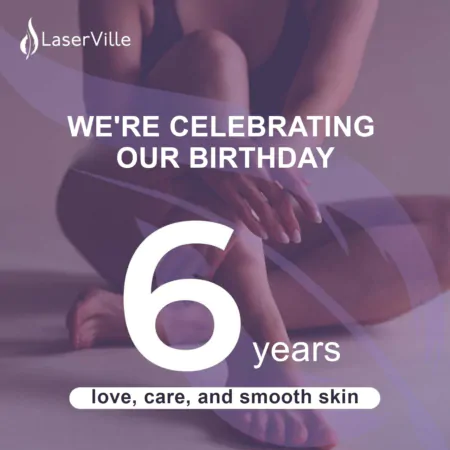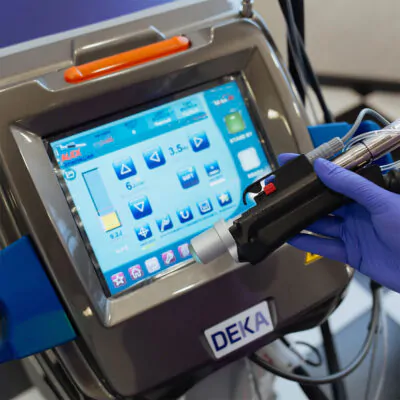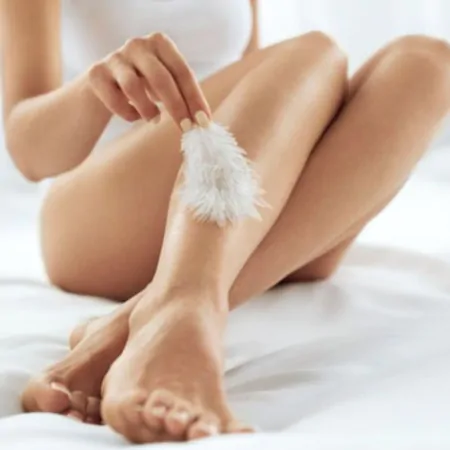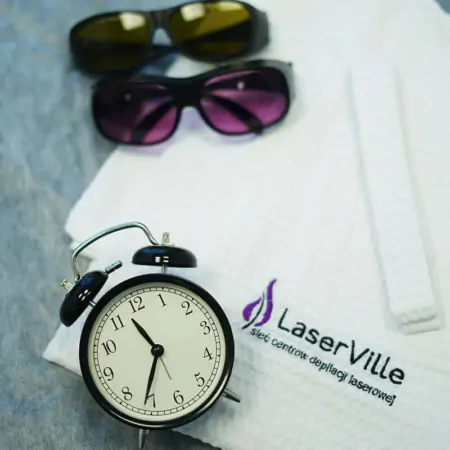Tanning before and after laser hair removal: why and how long to wait
Contents
- Why You Shouldn’t Tan Before Laser Hair Removal
- Why You Shouldn’t Tan After Laser Hair Removal
- How Long You Should Avoid Tanning Before and After Laser Hair Removal
- Precautions and Sun Protection
- What Else You Should Avoid Before and After Laser Hair Removal
- Tanning and Laser Hair Removal: In Conclusion
People who care about their appearance are often interested in the question of why tanning after laser hair removal is not recommended. Tanning and laser hair removal are beauty procedures that require special attention. Many people want to have a tanned look and simultaneously get rid of unwanted hair, but it’s important to understand that combining these procedures can lead to unpleasant results. Experts strongly recommend avoiding tanning before and after laser sessions. In this article, we will discuss what happens if you tan after laser hair removal and whether it can be done without harming your skin.
 Why You Shouldn’t Tan Before Laser Hair Removal
Why You Shouldn’t Tan Before Laser Hair Removal
Let’s start by examining how a laser affects tanned skin. Exposure to the sun shortly before laser hair removal on the legs and other areas makes the skin hypersensitive, significantly increasing the risk of complications. Thus, having a fresh tan leads to a high risk of burns, dark spots, and irritation.
It’s also worth considering tanned skin in general. The mechanism of action of the laser involves affecting melanin, the pigment responsible for the color of hair and skin. In tanned skin, the melanin level is much higher, so the laser may start to affect the pigment in the skin, leading to burns and other side effects. This also applies to people with naturally dark skin tones. This is why older-generation lasers are not suitable for tanned clients or those with dark skin phototypes.
Fortunately, the Moveo technology now exists, making the procedure possible even for the darkest skin. However, it’s important to understand that even with Moveo technology, tanned skin requires more delicate treatment, which reduces effectiveness. Ultimately, additional sessions may be required to achieve the desired effect. Considering this, you can save money when planning your treatment course.
Why You Shouldn’t Tan After Laser Hair Removal
After laser hair removal, the skin can be very sensitive and vulnerable to external influences, especially sunlight. The laser destroys the hair follicles, which temporarily makes the surrounding skin more susceptible. Tanning after laser hair removal can cause redness and hyperpigmentation since the skin hasn’t fully recovered yet.
The formation of dark spots and uneven skin tone is a common consequence of UV exposure on laser-treated skin. This is one of the main reasons why tanning after laser hair removal is not recommended. Additionally, it’s important to remember that laser hair removal requires a series of sessions with a few weeks in between, so between sessions, it’s essential to follow the recommendation to avoid tanning both before and after the procedure. In the next section, we’ll discuss when it’s safe to tan after laser hair removal.
 How Long You Should Avoid Tanning Before and After Laser Hair Removal
How Long You Should Avoid Tanning Before and After Laser Hair Removal
The period of avoiding tanning before and after laser hair removal is largely determined by the quality of the equipment and its compliance with modern standards. When using traditional lasers, it is recommended to avoid tanning for at least two weeks before the procedure.
However, if the Moveo technology is used for hair removal, the restriction period is significantly reduced. Moveo is gentler on the skin, allowing the tanning avoidance period to be reduced to 3-5 days before the procedure. This makes the technology more convenient for those who want to maintain a tanned appearance without compromising the safety and effectiveness of laser hair removal. After the session, a 3-5 day recovery period is also sufficient before you can be exposed to sunlight again.
Therefore, how long you should avoid tanning after laser hair removal depends on the type of laser used. The revolutionary Moveo technology significantly reduces this time, making the process more flexible and convenient for clients.
Precautions and Sun Protection
Protecting your skin from the sun is one of the key aspects of care before and after laser hair removal. Understanding whether you can tan after laser treatment and what precautions to take is crucial for ensuring maximum effectiveness and preventing adverse effects. Key tips to keep in mind:
- Use high-SPF sunscreen, apply it to the skin 15-30 minutes before going outside, and reapply every 2 hours.
- Cover laser-treated areas of the skin with clothing. Lightweight fabrics like cotton or linen will provide comfort and protection from UV rays, which is especially important after laser hair removal on the arms or other parts of the body that are often exposed.
- Avoid direct sunlight. Whenever possible, stay in the shade, especially during peak sun hours from 10 AM to 4 PM.
Avoid tanning beds. Artificial UV rays can be just as harmful as sunlight.
- Postpone the procedure if taking photosensitizing medications. Laser hair removal is contraindicated if you are taking drugs that increase sensitivity to light (tetracyclines, fluoroquinolones, and retinoids).
- Regularly moisturize your skin to maintain its health and speed up recovery.
- Monitor your skin’s condition. If you experience redness, rashes, or other side effects after the procedure, consult a specialist.
By protecting your skin from the sun, you ensure safety and comfort throughout the entire care period.
What Else You Should Avoid Before and After Laser Hair Removal
It’s important to consider not only whether you can tan after laser hair removal but also additional recommendations to follow. These measures will help protect you from complications and maximize the results of full-body laser hair removal or specific areas:
- Avoid using scrubs and peels on the treated areas for a few days before and after the procedure.
- Do not use creams and lotions with active ingredients (e.g., products with salicylic or glycolic acid).
- Avoid waxing, sugaring, depilatory creams, or tweezers for 4 weeks before laser hair removal. These methods damage the hair roots, making laser hair removal less effective.
Avoid hot baths, saunas, and other sources of heat for 3 days after the session to prevent skin inflammation.
- Avoid intense physical exercise that causes excessive sweating, as this may lead to irritation after the laser treatment.
- Avoid applying makeup to the treated areas for 24 hours after the session to prevent clogged pores and irritation.
Following these measures before and after laser hair removal will ensure comfortable skin regeneration and better results. Experienced specialists at LaserVille salons will answer all your questions, including how long you should avoid tanning after laser hair removal in your specific case.
Tanning and Laser Hair Removal: In Conclusion
Today, we thoroughly discussed how UV rays and laser hair removal are related: why you shouldn’t tan directly before and after the procedure, how long to wait depending on the type of laser, and more. At LaserVille salons, medically trained professionals use the latest Motus AX machines with Moveo technology, ensuring a painless process and reducing the tanning restriction period to 3-5 days. Laser treatment after tanning can reduce the procedure’s effectiveness and even harm your skin, so it’s essential to avoid sun exposure both before and after the session. Following other recommendations is also necessary for a successful outcome.


 Why You Shouldn’t Tan Before Laser Hair Removal
Why You Shouldn’t Tan Before Laser Hair Removal How Long You Should Avoid Tanning Before and After Laser Hair Removal
How Long You Should Avoid Tanning Before and After Laser Hair Removal Avoid tanning beds. Artificial UV rays can be just as harmful as sunlight.
Avoid tanning beds. Artificial UV rays can be just as harmful as sunlight. Avoid hot baths, saunas, and other sources of heat for 3 days after the session to prevent skin inflammation.
Avoid hot baths, saunas, and other sources of heat for 3 days after the session to prevent skin inflammation.




























No reviews